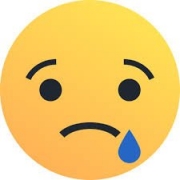Loneliness- The Un-Named Diagnosis

Did you know that if you tell Siri you want to kill yourself, she will connect you to the national suicide hotline? This is remarkable and potentially life saving, yet it makes me sad that in our darkest hour of need, we might reach out to our phones instead of another human being.
We are starting to name a growing mental health crisis in our nation, which marks progress, but we are only beginning to scratch the surface of its causes. While loneliness doesn’t get mention in the DSM 5, it can be a causal factor in anxiety disorders, depressive disorders, substance use disorders, and eating disorders. What is happening to our ability to connect with each other in a meaningful and substantive way?
Psychology Today, in March/April 2018, addressed loneliness as an epidemic in America. Feelings of alienation and rejection lie at the heart of the issue and impact all social groups, whether old or young, married or single. New research indicates that loneliness causes genuine hurt, impacting the same part of the brain that registers physical pain. Yet it is the quality of connection most at stake, for we can be in a room full of people and still feel alone. Conversely, we can spend time alone and still feel deeply connected, if we have relationships rich in quality.
Human beings are relational creatures. We learn and grow via inter-connectedness. While highly individual, we thrive when feeling supported and validated by core people in our lives. In the program I teach, Mental Health First Aid , we have a term called “ministry of presence,” which describes a quality of being with another person without pushing an agenda, judging, or giving unsolicited advice. This is vital because we all want to feel a sense of acceptance, respect, and love. Like a parent lovingly holding a child in his/her arms, ministry of presence requires nothing more than showing up with quiet focus on the moment shared. However, demands on our time and attention pull us away from these types of interactions. We’re also putting focus on external validation (i.e. how many likes did my post get on Instagram) vs. the sense of security that comes with genuine acceptance for simply being.
In order to connect more fully we others, we need to take a little time to connect with ourselves. Otherwise, we’re running on empty and don’t have much in terms of energy or internal resources to give to others. We can sit with ourselves in quiet meditation, or go for a walk, or journal write. Although these are solitary activities, they actually can decrease feelings of loneliness because they increase a sense of connectedness to self. From there, we can practice being more present with others in our lives.
Connection though requires a degree of reaching out. To that end, I highly encourage you to make a phone call a day to someone. Check in with someone and find out how he or she is doing. Share a bit how you’re doing. This builds connections that run deeper than sending an emoji via text. This is important because if someone is feeling down enough to consider suicide, a relationship built on very surface communication might not prompt him or her to reach out to you. The suicide rate in America has gone up 25% in the last two decades and loneliness most likely plays a role in this devastating statistic. If we want to cure loneliness and isolation, we need more than Siri to help us do that. We need to actively foster relationships that convey care.
The post Loneliness- The Un-Named Diagnosis appeared first on Selfish Bitch of a Daughter.
Source: Lise’s Letters
Loneliness- The Un-Named Diagnosis

